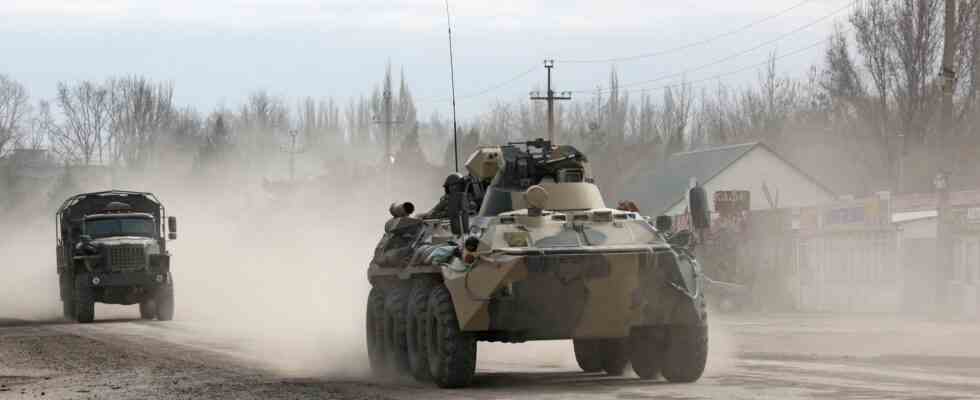Status: 09.05.2022 12:15 p.m
In the South Ossetia region, which has broken away from Georgia, the president has been voted out of office, partly because he had justified sending soldiers to Ukraine – a sign of resistance to the leadership in Moscow.
It was news that barely caught the eye amid Russian Victory Anniversary propaganda. It is a sign of the mood in Russia’s periphery, where many soldiers are being recruited for the war in Ukraine.
It’s about the South Ossetia region, which was a breakaway from Georgia and which Russia recognized after the 2008 war and took it under de facto military control at the time. Anatoly Bibilow has ruled there since 2017, who now had to face re-election – and now lost so clearly in a run-off against opposition leader Alan Gaglow that he did not even try to manipulate the results or use force to remain in power.
Bibilov had set out to present himself as a loyal follower of the leadership in Moscow. In particular, he justified sending soldiers from the region to fight in Ukraine. They belong to Russian units stationed in the region and it was the Russian military leadership that decided on their deployment in Ukraine.
However, in public appearances and on his Telegram channel, Bibilov repeatedly cited arguments as to why his compatriots should fight alongside Russia: “Many people died for South Ossetia, Russians and other nationalities.” He spoke of the fight against Nazis in Ukraine, who might as well invade South Ossetia. “We fight there, but we defend our own homeland.”
Not the South Ossetian war
He failed to convince his voters, especially when the independent Russian media platform Media Zona reported on a mutiny by Ossetian soldiers in Ukraine. It broke out when an officer forbade them to recover the body of a member of their unit. He wanted to send an empty coffin back home. The soldiers then deserted.
Media Zona also reported on a conversation between returned soldiers and Bibilow. According to an audio recording, they told him about catastrophic fighting conditions. They cited problems with logistics, tactics, lack of preparation and defective weapons. One of the soldiers said to Bibilov that the war in Ukraine was not the war in South Ossetia.
About 300 soldiers returned ahead of the first round of the April 10 presidential election, spreading the stories of the war. Apparently anticipating a poor voting performance, Bibilov tried to divert attention with another issue: he promised a referendum on the admission of South Ossetia into the Russian Federation.
Even if members of parliament in Moscow spoke out in favor of an annexation, many voters apparently saw this as a transparent maneuver. Putin’s presidential administration was once again very cautious. There had already been votes on affiliation in the past, but the leadership in Moscow had never complied. In March, Russia’s Deputy Economy Minister Dmitry Volvakh even declared that South Ossetia and Abkhazia, the other region that has broken away from Georgia, need to become less financially dependent on Russia.
Peaceful transfer of power
Bibilow’s challenger Gagloew apparently assessed the situation more realistically. He was skeptical about sending soldiers and calling a referendum. He narrowly won against the already unpopular Bibilow in the first round and in the runoff he was ahead with almost 54 percent after counting 85 percent of the votes. Bibilow had already congratulated him on election night and, as feared, did not try to hold on to power.
On Twitter, one user commented: “How ironic, the citizens of South Ossetia have a privilege that 140 million Russians don’t have: every four years they see their president peacefully step down.” In this respect, the result could reflect the mood, especially in the remote regions where many soldiers are recruited, better than surveys conducted by institutes in Russia that are under state pressure.

